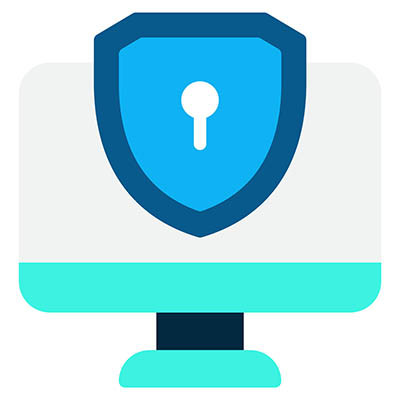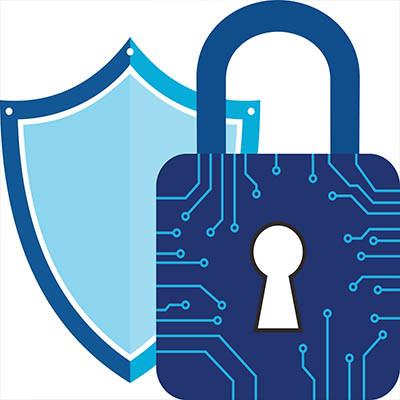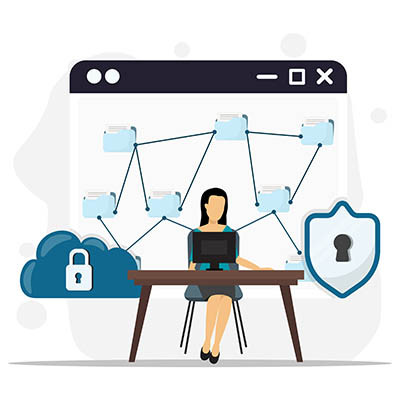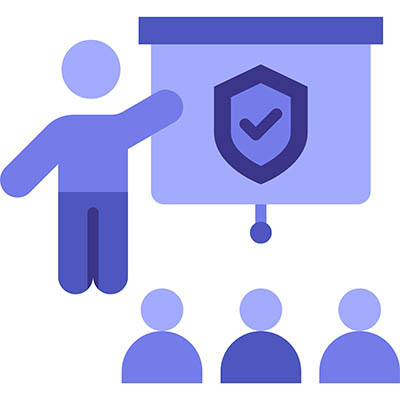Does your business operate in the moment, or does it prioritize what’s just around the corner? As a business owner, you have a tricky balance to strike between the two, and where technology is concerned, the answer is not always so clear-cut. But it’s generally better for your business to look at technology management with the perspective offered by an IT roadmap to inform your decision-making, from everyday implementations to major deployments.
PC PLACE Blog
Does the idea of cybersecurity strike fear into your heart? We know it’s not every business’ specialty, but that doesn’t make it any less important for companies like yours to consider. Today, we want to make it as easy as possible for your employees to practice appropriate cybersecurity measures, and that starts with a simple one-page cybersecurity cheat sheet.
We will be the first to admit it: we are obsessed with security.
In an era where cybercriminals are more sophisticated and persistent than ever, that obsession is a necessity. Modern security requires a fundamental shift in mindset: you cannot implicitly trust anyone. Not outside hackers, and—uncomfortable as it may be—not even the people inside your organization.
This trust-no-one approach is the foundation of Zero-Trust Security.
It isn’t rare for business owners to seek out opportunities to trim expenses and cut costs wherever possible. Your security should never be someplace you look… particularly if you hope to ever secure the increasingly crucial business insurance you need.
Now you may be saying, “But my IT is surely good enough.” Unfortunately, that standard isn’t sufficient in the eyes of insurance providers, and as a result, it actually becomes more expensive than having the right technology protections in the first place.
As an IT service provider, our techs spend their days at the intersection of cutting-edge and business-critical. In 2026, the conversation about each has shifted. It is no longer about whether you should use AI, because everyone is, but about the risks of trusting it blindly.
We have seen it firsthand: companies that treat AI like a set-it-and-forget-it solution often end up calling us for emergency damage control. Here are the major pitfalls of over-trusting AI and how to keep your business from becoming a cautionary tale.
A backup does not truly exist until you have successfully restored from it. This is the hard truth of information technology. Many business owners and internal teams rely on the green checkmark in their software dashboard to signify safety. However, that status light can be misleading, masking deep-seated issues that only appear when a crisis begins.
In the late 1990s, computer security was simple: you locked the door to the server room and hoped nobody guessed that the admin password was, well, “admin.”
Fast forward to today, and that is simply unrecognizable. Hoping for the best isn't just a poor strategy; it’s a liability. As you set your business goals for the coming year, it’s time to move past legacy mindsets. Modern protection requires more than just software; it requires a team that is trained, vigilant, and ready to act as your first line of defense.
Today’s business technology is like operating in the wild west. It’s expansive, fast-moving, and if you aren’t careful, it can gallop away from you before you even realize it’s gone. Between SaaS sprawl, underutilized hardware, and hidden maintenance fees, many companies are overspending by 20-to-30 percent on their entire technology stack. That’s a lot of money.
It’s time to saddle up and start earning some savings. Today, we wanted to give you a guide of sorts that can help you round up your expenses and bring your technology budget back under control.
Did you know that, in physics, regardless of how much time, sweat, and energy you put into pushing a boulder, if it doesn’t move, the “work done” is seen as zero? The same is true in business… at the end of the day, your investment in your organization and its people is only worthwhile if you see results.
So, you need to ask yourself: how much work are your team members actually getting done? Are they moving the boulder, or are they just trying a lot but not actually making any progress? Let’s examine what often leads to this kind of stagnant struggle and how you can fix it.
Have you ever stopped to ask yourself if the person you’re talking to on the phone is an AI system or an actual, honest-to-goodness human? It’s expected that in 2026, you’ll be asking this question a lot more often—especially with the rise of agentic AI. This development takes the vulnerability that already exists in your human infrastructure and attempts to make it impossible to stop. Today, we’ll explore agentic AI, what it looks like, and what you can do to put a stop to it in the years to come.
Technology doesn’t last forever, so what would you do if your keyboard or computer monitor bit the dust tomorrow? Some might just throw the technology in the trash and not think twice about it, but that’s the exact opposite of what you should do. Instead, we urge you to go through the proper channels to properly dispose of your old electronics—if not for the environment’s sake, then for your business’.
Despite the immense productivity and convenience that come from using a smartphone, it’s important to remember that these devices are miniature computers in our pockets. As such, they are just as susceptible to threats as a computer or laptop. According to the National Security Agency, powering down your device is one of the most effective ways to protect your smartphone from various threats. Here’s why.
It would seem that the people responsible for the recent heist at the Louvre, which netted over $101 million in jewelry, may have used a more complicated plan than strictly necessary. According to a French publication, the famous museum has a long history of cybersecurity mistakes and faux pas… many of which, given the museum’s fame, are truly shocking.
Let’s go over what we know about the Louvre’s protections over the years, and what they suggest about the current state of things. We’ll probably learn a thing or two by doing so.
An old fable says that a frog placed in a pot of boiling water will jump out immediately, but if the water is warmed to boiling with the frog already in it, the frog won’t notice until it is already too late. Many businesses today act like that frog, overlooking minor tech issues that signal a growing problem until the damage is done.
Let’s see if we can identify some of these issues to help keep you out of hot water.
Happy Halloween! Tonight, ghosties and goblins will roam from door to door, collecting candies along the way. This is to be expected. Less expected are the cyberthreats and attacks that darken the doors of modern businesses of all shapes and sizes.
Let’s talk about the things you need to do to keep your business safe, inside and out, every night of the year.
Business is already complicated enough without having to remember all of your passwords. Unfortunately, logins and sign-ons are a necessary part of operations, and without them, work isn’t going to get anywhere. All that said, there is a solution to the problem of having too many accounts with too many unique credentials, and it all starts by asking a simple question.
Are you making the most out of every single mouse click you make? The navigation peripheral has a lot of hidden functionality that you might not realize exists. Today, we want to go over some of the ways you can make each mouse click matter just a little bit more, as well as how you can use these tricks to save a little time and be a bit more productive.
How often do you find yourself thinking about how new technology will impact your business’ bottom line? Chances are, you have considered implementing a new piece of technology or two, but you might get stuck on whether or not it will actually be worth the investment. This is where you consider the return on investment that technology will provide, or ROI. Here’s how you can make sure your technology is providing results and what you can do if it doesn’t get the results you’re looking for.




















